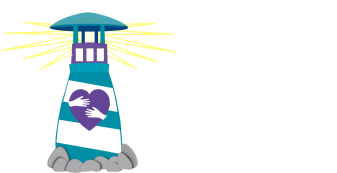
Warning signs
Suicide does not have one single cause. Recognizing suicidal behavior can in many cases, prevent suicide. Learn the warning signs. If a family member or friend talks about suicide, take them seriously. Listen without judgment and encourage them to seek professional help.
For more warning signs, visit Suicide Prevention Resource Center.
- Threatening suicide
- Talking or writing about suicide
- Isolation or withdrawal
- Agitation, especially combined with
sleeplessness
- Agitation, especially combined with
- Giving away prized possessions, making final arrangements, putting affairs in order
- Increased alcohol or drug use
- Recent loss of a friend or family member through death, suicide, or divorce
- Themes of death or depression in conversation, writing, reading or art
- No longer interested in favorite activities or hobbies
- Taking unnecessary risks/recklessness
- Nightmares
- Previous suicide attempts
- Seeking methods to kill oneself
- Feeling hopeless or trapped
- Changes in eating patterns
- Dramatic mood changes
- Inability to sleep or sleeping all the time
- Sudden dramatic decline or improvement in work/school work
- Chronic headaches, stomach aches, fatigue
- Sudden, unexpected loss of freedom or fear of punishment/humiliation
Risk Factors
Risk factors are characteristic of a person or his or her environment that increase the likelihood that he or she will die by suicide (i.e., suicide risk). Major risk factors for suicide include:
- Prior suicide attempt(s)
- Misuse and abuse of alcohol or other drugs
- Mental disorders, particularly depression and other mood disorders
- Access to lethal means
- Knowing someone who died by suicide, particularly a family member
- Social isolation
- Chronic disease and disability
- Lack of access to behavior health care

Risk Factors
Biopsychosocial
Biopsychosocial
Health and illness are not solely determined by biological factors but are influenced by a complex interaction of various factors that are interconnected and mutually influence each other.
- Previous suicide attempt
- Mental disorders
- Alcohol and substance abuse disorders
- Family history of suicide
- History of trauma or abuse
- Hopelessness
- Impulsive and/or aggressive tendencies
- Some major physical illnesses
Environmental
Environmental
Recognizing the influence of the environment on mental health underscores the importance of creating supportive and inclusive environments, promoting social connections, reducing stigma, and ensuring access to mental health resources.
- Job or financial loss
- Relational or social loss
- Easy access to lethal means
- Local clusters of suicide that have a contagious influence
- Stigma associated with help-seeking behavior
- Barriers to accessing health care, especially mental health and substance abuse treatment
- Certain cultural and religious beliefs – for instance, the belief that suicide is a noble resolution of a personal dilemma
- Exposure to the influence of others who have died by suicide, including media exposure.
socialcultural
socialcultural
The social and cultural context in which individuals live can influence their beliefs, attitudes, values, social norms, and the way mental health is understood, experienced, and addressed.
- Stigma associated with help-seeking behavior
- Barriers to accessing health care, especially mental health and substance abuse treatment
- Certain cultural and religious beliefs – for instance, the belief that suicide is a noble resolution of a personal dilemma
- Exposure to the influence of others who have died by suicide, including media exposure.
Protective factors for suicide
- Cultural and religious beliefs that discourage suicide and support self-preservation
- Skill in solving problems, resolving conflict and handling disputes non-violently
- Strong connections to family
- Strong connections to community support
- Effective professional care for mental, physical and substance abuse disorders
- Easy access to a number of different types of professional help
- Being supported to seek help
- Mental and medical health care relationships that are ongoing
- No access to highly lethal means of suicide
Educational Resources
Help bring resources, hope, and support to those
affected by suicide
donating and getting involved
If you are interested in volunteering with us on a regular basis, please fill out the form. You may also join us at our monthly community meetings which are held the first Thursday of each month. See our events page for more information.
Get Involved
Donate
Get Involved
Donate
Support Community Suicide Prevention Through A Donation


